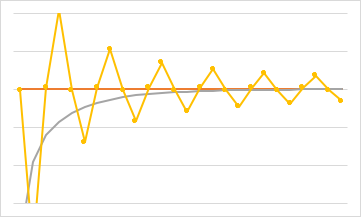Hi! First post here, and a mighty ‘thank you!’ to anyone who reads and responds.
TLDR: My faith in God has always had a narrow victory over my innate skepticism, and now learning more about a non-literal interpretation of Genesis is throwing the entire Bible into question for me. How do you deal?
After about 10 years of diligently studying the Bible, I felt called to make use of what I had learned and to start leading an exegetical Bible study. Most of my own theological education has come from pastors and resources favoring a literal interpretation of the Bible except where ‘definitively’ poetic, and despite being a physician and fan of the scientific method, in my personal studies I have in general pushed aside any contradictory evidence with the mindset that someday science will catch up to the Bible. However, I am trying to present different views as objectively as possible for my study group, and have been looking more objectively at these different views myself, trying to take a step back from my presuppositions . I feel like doubting the validity (specific word choices and meanings) of any part of God’s Word is a slippery slope and would potentially cause one to question the word choices and meanings of all of it. For instance, we have faith in Jesus but He and the New Testament authors seem to faithfully believe in the literal reporting of Genesis; another related issue is that if names, timelines and genealogies are not reliable throughout Genesis, how then can we really believe that the Jewish people had a claim to be God’s chosen ones; was Ishmael actually the chosen line, and the rest of Genesis just propaganda Israel fed themselves to boost their corporate ego? And in that case why even trust that there was a Messiah or that a messiah was even needed? Sigh. As you can see, I’m not in a good place and need help.
I have been sincerely praying for clarity on this issue, and for stronger faith, but feel like I am slipping down that slope. In answer to my prayers, God led me to this forum. Obviously I don’t want to teach others information which I am not confident of, and need to stop this study -But that’s the simple part. What then? How do I reconcile God’s Word vs. simply words about god?
Specific help requested from any of you with more knowledge on the subject:
- is there really a well-defined change in the type of writing that is used in Genesis 1-11 versus Genesis 12 on? Is there some other reason to believe the rest of scripture as God’s own undeniable and very specific Word while not applying the same strong belief to gen 1-11?
- How do you, friends, allow yourselves to question the precise stories, names and timelines in the primeval chapters of Genesis, while NOT doubting the even more miraculous stories of Jesus’s life, resurrection and promises? If Genesis is merely to convey ideas and not to factually report history, couldn’t the same be said of the Gospels?
- What about prophetic scripture? Can we take any of that as Truth and expect it to play out as reported? If so, why?
- Is this just another attempt by Satan to impede the spread of God’s Word? Why believe that there actually is a satan if Genesis isn’t taken literally? Perhaps every other reference to satan is also figurative?
I don’t mean to be challenging/inappropriate and I shudder to think that my questions and (hopefully transient) moment of doubt would cause any of you to stumble in your own walk. But as you can tell, I’m on shaky ground and really need help overcoming this issue. Even if you don’t personally have any specific guidance, please pray for me.
Thanks in advance!
 May God bless your efforts to seek and discern the truth in all areas of life!
May God bless your efforts to seek and discern the truth in all areas of life!